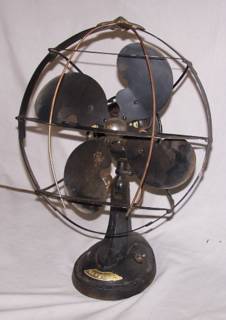In The Season of Giving
The real message of Dicken's A Christmas Carol is not unlike the following poem, wut he also wrote.
THE HYMN OF THE WILTSHIRE LABORERS
by: Charles Dickens (1812-1870)
GOD! who by Thy prophet's hand
Didst smite the rocky brake,
Whence water came, at Thy command,
Thy people's thirst to slake;
Strike, now, upon this granite wall,
Stern, obdurate, and high;
And let some drops of pity fall
For us who starve and die!
The God who took a little child
And set him in the midst,
And promised him His mercy mild,
As, by Thy Son, Thou didst:
Look down upon our children dear,
So gaunt, so cold, so spare,
And let their images appear
Where lords and gentry are!
O God! teach them to feel how we,
When our poor infants droop,
Are weakened in our trust in Thee,
And how our spirits stoop;
For, in Thy rest, so bright and fair,
All tears and sorrows sleep:
And their young looks, so full of care,
Would make Thine angels weep!
The God who with His finger drew
The judgment coming on,
Write, for these men, what must ensue,
Ere many years be gone!
O God! whose bow is in the sky,
Let them not brave and dare,
Until they look (too late) on high,
And see an Arrow there!
O God, remind them! In the bread
They break upon the knee,
These sacred words may yet be read,
"In memory of Me!"
O God! remind them of His sweet
Compassion for the poor,
And how He gave them Bread to eat,
And went from door to door!
"The Hymn of the Wiltshire Laborers" is reprinted from The Poems and Verse of Charles Dickens. Ed. F.G. Kitton. New York: Harper & Brothers, 1903.
In The Spirits of the Season
At the end of A Christmas Carol, Scrooge says to Cratchit:
"I'll raise your salary and endeavor to assist your struggling family as we discuss your affairs this very afternoon over a Christmas bowl of Smoking Bishop."
Q: What's a Smoking Bishop?
A: Red wine, port, whole ripe bitter oranges, sugar, cloves, star anise & cinnamon. The punch is heated (mulled) in a vessel with a long funnel, which was pushed far down into the fire until it 'smoked.' The name 'Bishop' came from its purple color.
The real message of Dicken's A Christmas Carol is not unlike the following poem, wut he also wrote.
THE HYMN OF THE WILTSHIRE LABORERS
by: Charles Dickens (1812-1870)
GOD! who by Thy prophet's hand
Didst smite the rocky brake,
Whence water came, at Thy command,
Thy people's thirst to slake;
Strike, now, upon this granite wall,
Stern, obdurate, and high;
And let some drops of pity fall
For us who starve and die!
The God who took a little child
And set him in the midst,
And promised him His mercy mild,
As, by Thy Son, Thou didst:
Look down upon our children dear,
So gaunt, so cold, so spare,
And let their images appear
Where lords and gentry are!
O God! teach them to feel how we,
When our poor infants droop,
Are weakened in our trust in Thee,
And how our spirits stoop;
For, in Thy rest, so bright and fair,
All tears and sorrows sleep:
And their young looks, so full of care,
Would make Thine angels weep!
The God who with His finger drew
The judgment coming on,
Write, for these men, what must ensue,
Ere many years be gone!
O God! whose bow is in the sky,
Let them not brave and dare,
Until they look (too late) on high,
And see an Arrow there!
O God, remind them! In the bread
They break upon the knee,
These sacred words may yet be read,
"In memory of Me!"
O God! remind them of His sweet
Compassion for the poor,
And how He gave them Bread to eat,
And went from door to door!
"The Hymn of the Wiltshire Laborers" is reprinted from The Poems and Verse of Charles Dickens. Ed. F.G. Kitton. New York: Harper & Brothers, 1903.
In The Spirits of the Season
At the end of A Christmas Carol, Scrooge says to Cratchit:
"I'll raise your salary and endeavor to assist your struggling family as we discuss your affairs this very afternoon over a Christmas bowl of Smoking Bishop."
Q: What's a Smoking Bishop?
A: Red wine, port, whole ripe bitter oranges, sugar, cloves, star anise & cinnamon. The punch is heated (mulled) in a vessel with a long funnel, which was pushed far down into the fire until it 'smoked.' The name 'Bishop' came from its purple color.





0 Comments:
Post a Comment
<< Home